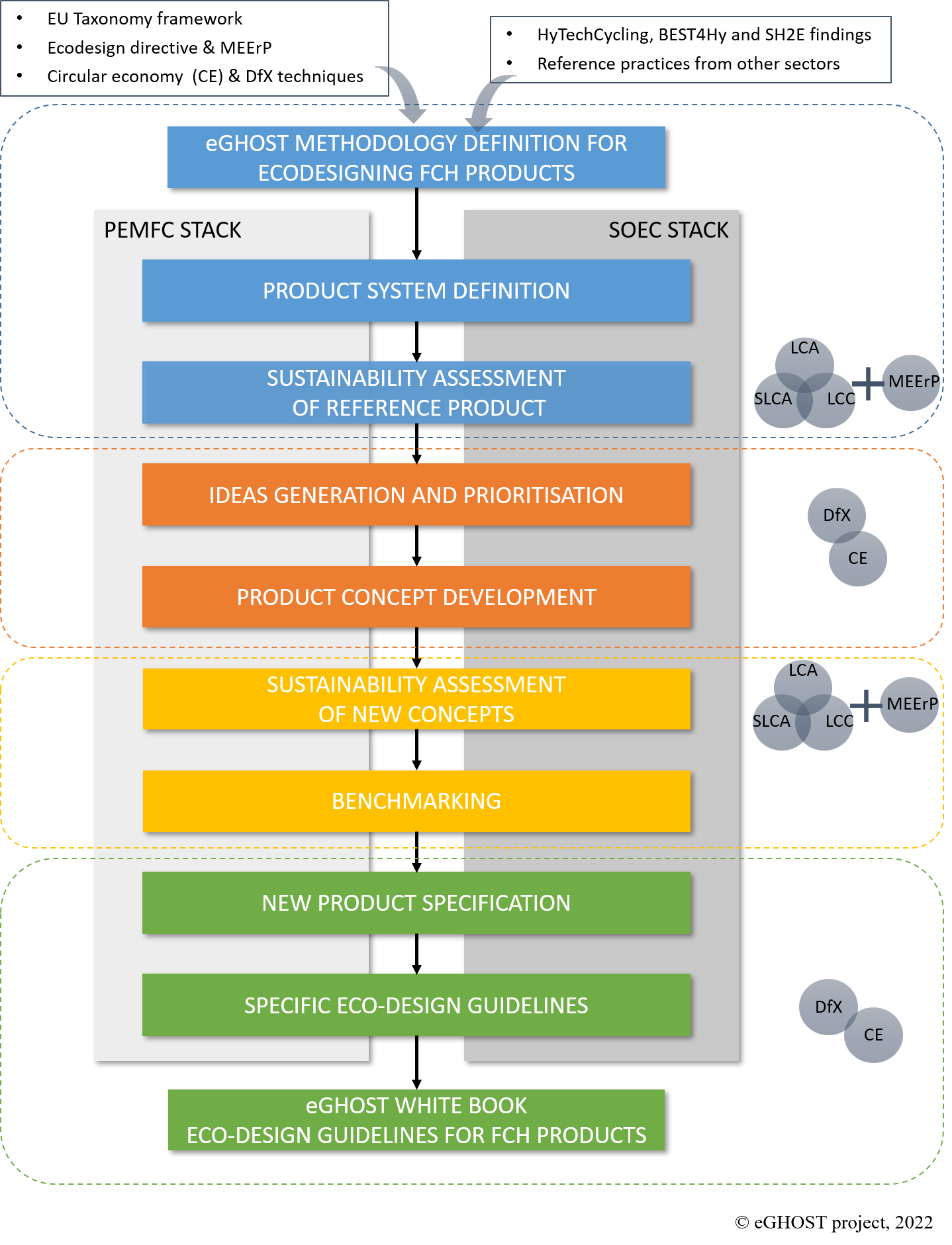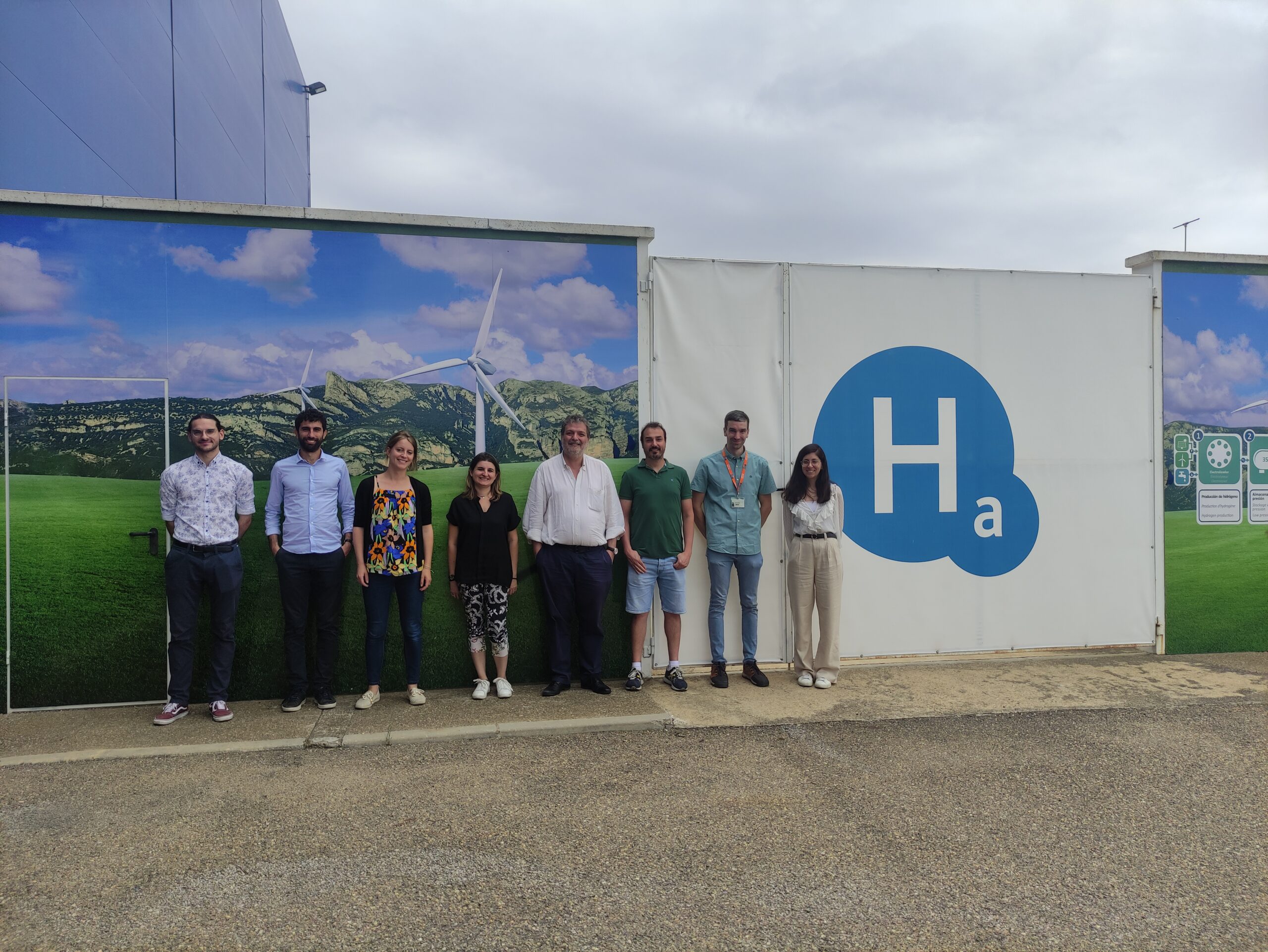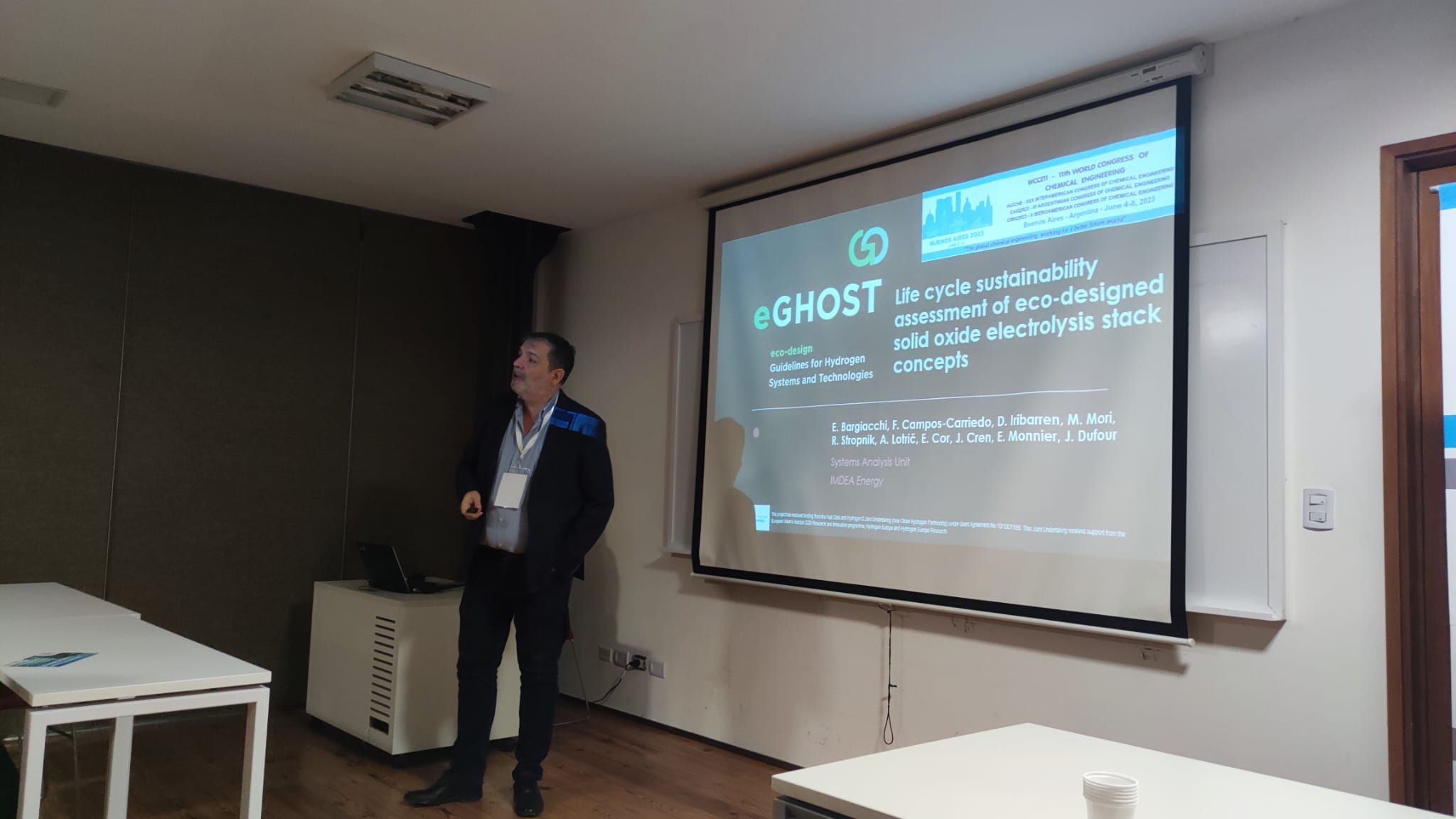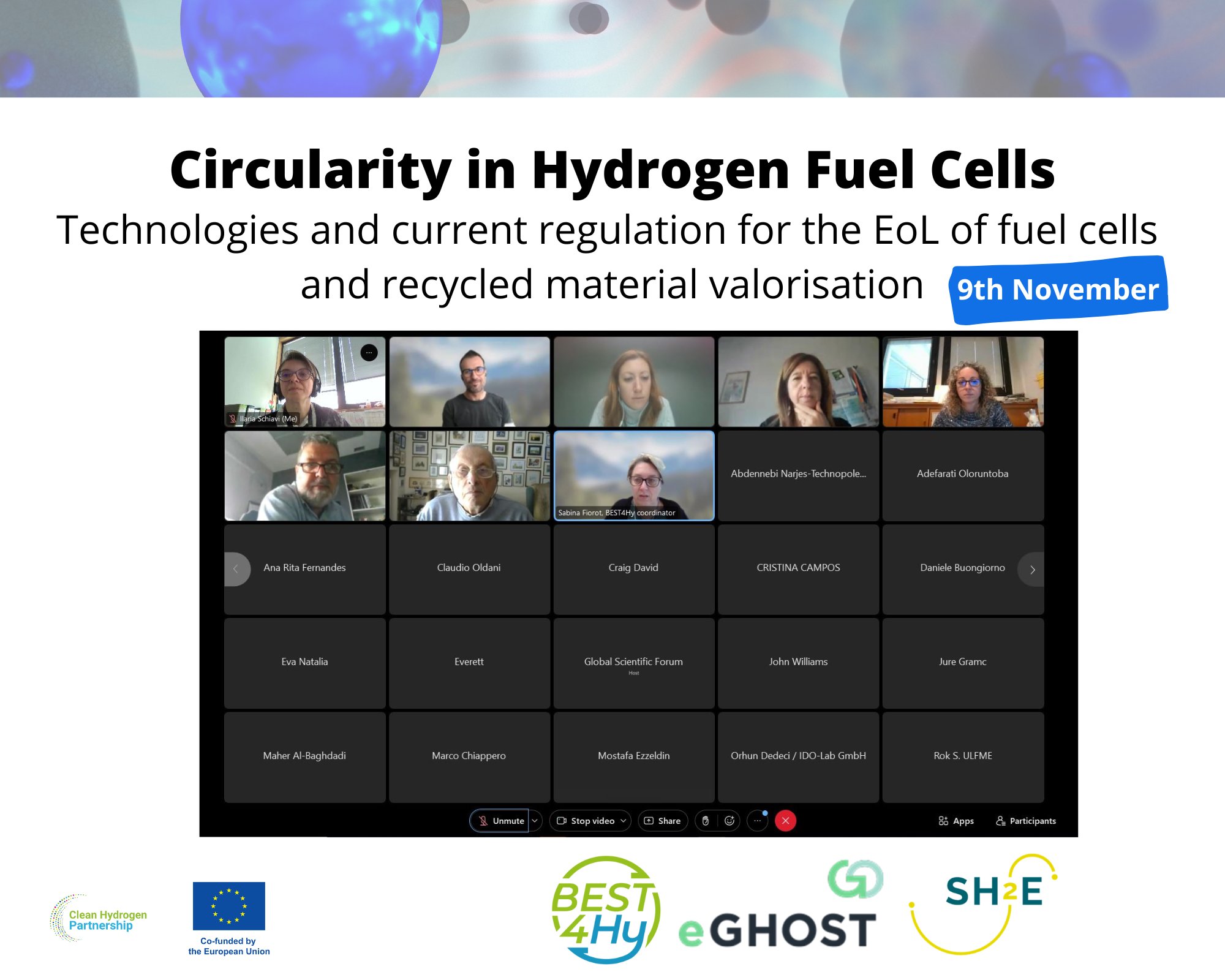
eGHOST product concepts are on track
eGHOST product concepts are on track. The Work Package 3 of the eGHOST project, Establishing eco-design product concepts, started in October 2021 in order to generate and categorise new product ideas and subsequently develop product concepts that improve the sustainability performance of the two hydrogen-related products under study: a 5 kW solid oxide electrolysis cell (SOEC) stack and a 48 kW proton-exchange membrane fuel cell (PEMFC) stack.
Generating ideas
Brainstorming sessions for the generation of ideas specific to each product are being carried out. The latest one took place in Grenoble on 31st March-1st April 2022.
All of the axes of the eco-design strategy wheel are considered in these sessions: selection of low-impact materials, reduction of material usage, optimisation of production techniques, optimisation of distribution systems, reduction of impact during use, optimisation of initial lifetime, and optimisation of end-of-life system.
Regarding the PEMFC stack, the main eco-design actions focus on reducing the impacts attributable to platinum, which was previously identified as a hotspot in terms of criticality and life-cycle environmental, economic and social performance.
Actions on the use of recycled or renewable/low-energy platinum, optimisation of catalyst loading and shaping and minimisation of component thicknesses were found crucial in this direction.
Other actions such as those oriented to the reuse or redesign of stainless-steel components to improve stack recyclability and the substitution of the ionomer with non-PFSA (perfluorosulfonic acid) materials also look promising, though implementable in the medium/long term.
Concerning the SOEC stack, the main eco-design actions are oriented towards the reduction or recycling of steel (main environmental, economic and social hotspot) and the reduction, recycling or substitution of rare earth elements (especially lanthanum, yttrium and strontium, which are critical raw materials).
Compared to the PEMFC stack case study, the eco-design of the SOEC stack is particularly challenging since this technology is expected to reach commercial level around 2030.
Thus, eGHOST product concepts are on track and will be completed by the end of the year.
According to the eGHOST methodological framework (see figure), this will be followed by their sustainability assessment and benchmarking and the formulation of specific eco-design guidelines which will also serve as the basis for the final eGHOST White Book on general eco-design guidelines for hydrogen-related products.




